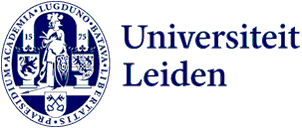
Marian Klamer appointed first director of PhD programmes at the Faculty of Humanities
A new position has been created at the Faculty of Humanities. On 1 September, Marian Klamer became the first Director of PhD Programmes at the Graduate School. ‘I want to find the balance.’

As Director of PhD programmes, Klamer will be taking over various tasks from the dean. For example, from now on she will approve the propositions of PhD candidates and their PhD committees, and she will also be the point of contact for any problems that may arise during a PhD programme. She will also represent the faculty at various meetings. This will be no mean feat, given the significant number of PhD candidates at the faculty.
So many PhD candidates, so many subjects
‘I have been doing some counting and we have about six hundred PhD candidates every year. We don’t see all of them, because almost two-thirds of them are external PhD candidates who don’t have a workplace at the university. But they are all supervised here,’ says Klamer. On top of that, here at Humanities we study anything and everything to do with humankind – from experimental language research in the lab, clay tablets in Mesopotamia and fieldwork and archives abroad to research in the arts. You don’t get diversity like that at the Faculty of Science, for example. I think it’s remarkable how well all of this works.’
No one-size-fits-all solution
Nevertheless, the supervision of PhD candidates is one of the areas for improvement that she wants to focus on in the coming period. ‘Some of the PhD candidates feel that there are very few rules they can fall back on. They are actually hampered by that freedom. But at the same time, professors aren’t keen on even more bureaucratic control. For them, it’s important that they remain autonomous. I want to find the right balance. That won’t be easy, because what some people regard as progress is a problem for others. For example, some professors can supervise ten or twenty PhD candidates because they are assisted by a team of postdocs and senior lecturers and professors. For others, that is just far too many. So, it is important that the rules are proportionate, so that they give people the tools they need, but don’t stifle them.’
More than a good feeling
Another issue that requires Klamer’s attention is the compensation that professors receive for supervising PhD candidates. Currently, supervision time is deducted from the professor’s research time. This system has its roots in the exact sciences, where PhD candidates are often part of a research group. They carry out research for a professor, and regularly publish articles together with the professor. In the Humanities, on the other hand, professors often get very little in return for supervising a PhD candidate, apart from a good feeling. ‘Here, PhD candidates usually work on their own project, which they complete almost entirely themselves,’ says Klamer. All the hours that professors put in, which can add up to a considerable amount each week, are not deducted from their teaching duties. So, this supervision is at the expense of their own research. That is not a desirable situation. Nor is it good for their teaching, since their teaching should be based on their own research. As commendable as it is that all six hundred PhD candidates are supervised without the professors receiving any compensation, I would like to do what I can to change this.’
